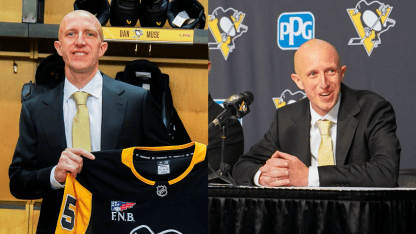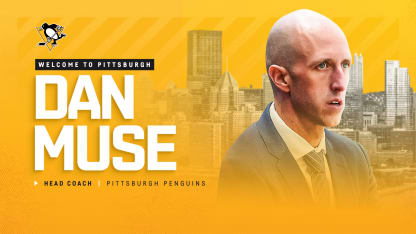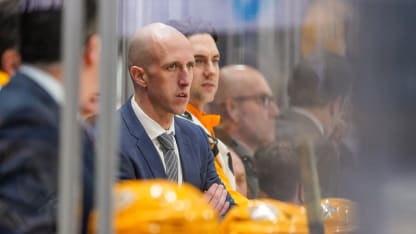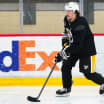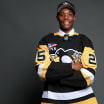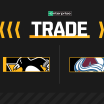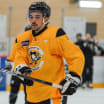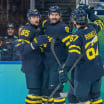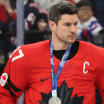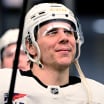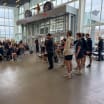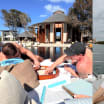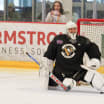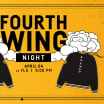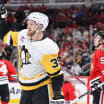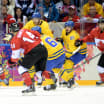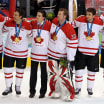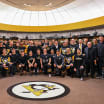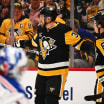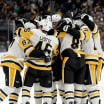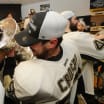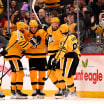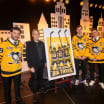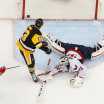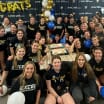Kyle Dubas felt the Penguins needed to be extremely thorough in their search for a new head coach, which ultimately led them to Dan Muse, who was hired into the role on June 4.
He isn’t someone Dubas knew personally before starting the interview process. But it soon became clear that Muse was "extraordinarily well-suited" for the job. At just 42 years old, Muse has over 20 years of coaching experience, including time as an NHL assistant with the Nashville Predators and New York Rangers. His track record of both winning and developing players of all ages stood out, as did Muse’s character.
“Talking to players, people and staff members that Dan has worked with, just the way that he conducts himself, his work ethic, his intelligence – everything about him – it became clear that he was going to be a great fit,” Dubas said. “To partner with us and help lead us through this transition, and then back into contention with the Pittsburgh Penguins.”
Muse said even just receiving that first phone call from Dubas was a “massive honor.” Learning he had gotten the position was the thrill of a lifetime.
“You have legendary players of our game here in Pittsburgh, future Hall of Famers; you have these exciting young players that are coming up; and then you have a little bit of everything in between,” Muse said. “To have an opportunity to work together with everybody here to make sure that these players are continuing to grow, wherever they are in their careers – I just can't tell you how exciting an opportunity that is.”

